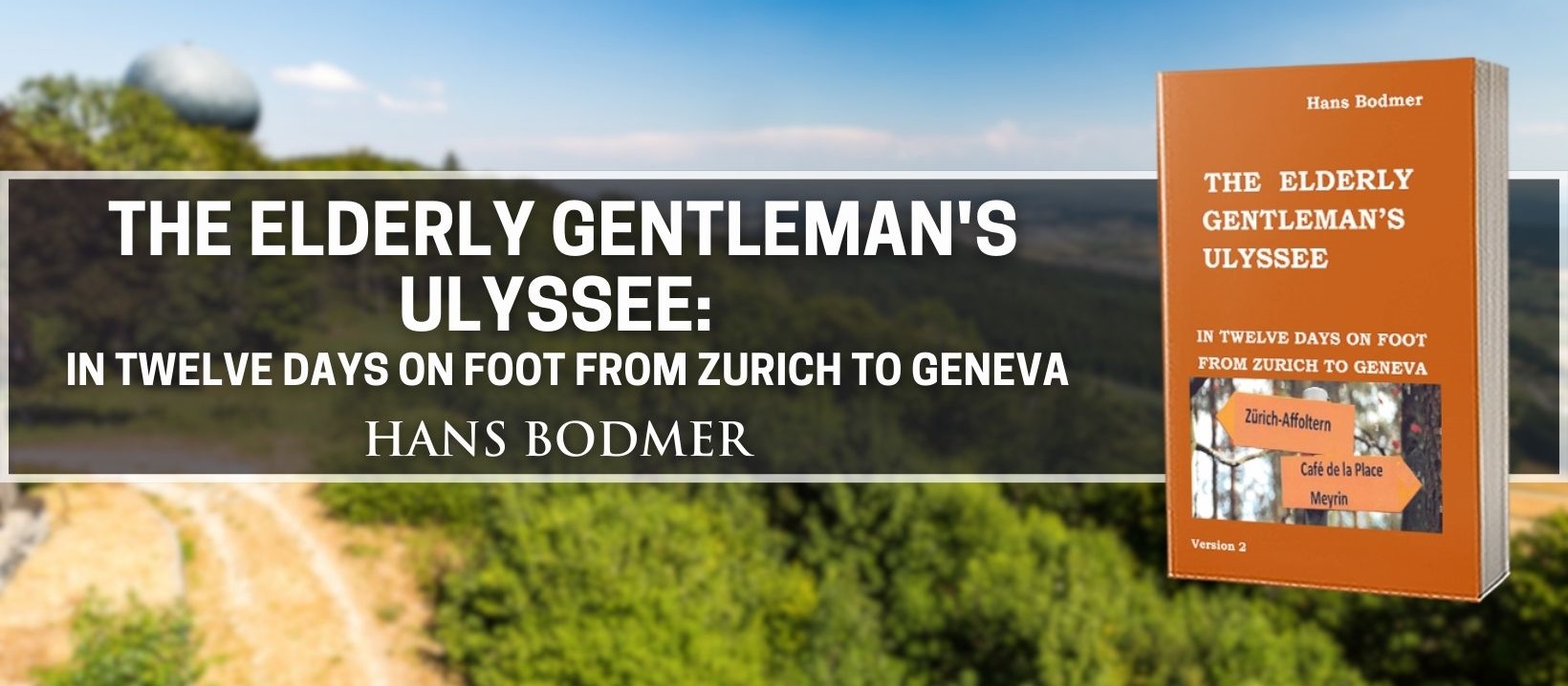
Travel is often seen as a journey toward a destination, but Hans Bodmer’s The Elderly Gentleman’s Ulyssee offers a different perspective. The protagonist’s 12-day hike from Zurich to Geneva reveals that the act of wandering itself—not the arrival—is where true self-discovery happens.
Embracing Aimlessness
In Bodmer’s tale, the protagonist sets out with a loose plan but embraces detours and unexpected encounters. This openness allows him to experience Switzerland beyond its picturesque brochures. For instance, instead of rushing through towns like Grapingen or Schinznach, he lingers to appreciate small details—a green bench, a fountain, or a simple conversation with a local pastor. These moments of aimlessness bring clarity and joy, illustrating how wandering lets us savor life in its unfiltered form.
Discovering the Inner Landscape
Wandering creates space for introspection. As the protagonist moves through forests, climbs hills, and braves rain-soaked roads, his thoughts drift toward life’s larger questions: What is the purpose of existence? How do human actions shape the world? The physical act of walking mirrors his mental journey, with each step deepening his understanding of himself and the world around him.
For example, when he humorously imagines carving a canal for millionaires to race their boats from Hamburg to Monaco, he isn’t just playing with absurd ideas—he’s reflecting on human ambition and the absurdities of progress. This blend of whimsical thought and profound insight is only possible because wandering frees him from the constraints of routine and destination-focused travel.
The Role of Solitude
Solitude is a recurring theme in Bodmer’s narrative. The protagonist’s solitary journey strips away distractions, allowing him to reconnect with his thoughts and emotions. Walking alone through the serene Aare Valley or the imposing Jura mountains, he confronts his limitations, fears, and desires. These moments of vulnerability become opportunities for growth, proving that solitude is not loneliness but a vital part of self-discovery.
Wandering as a Way of Life
Bodmer’s protagonist teaches us that wandering is not aimlessness but a deliberate choice to engage with the present. It’s in the meandering trails, the unplanned pauses, and the unexpected encounters that life’s richness is revealed. Whether it’s the humor in an awkward exchange or the beauty of an unnoticed landscape, wandering helps us see the world—and ourselves—with fresh eyes.
The Journey Matters More
Ultimately, The Elderly Gentleman’s Ulyssee reminds us that the destination is only part of the story. The true magic lies in the journey itself, in the act of wandering without expectation. For anyone seeking self-discovery, the path forward is simple: lace up your shoes, step outside, and let the world unfold at its own pace.